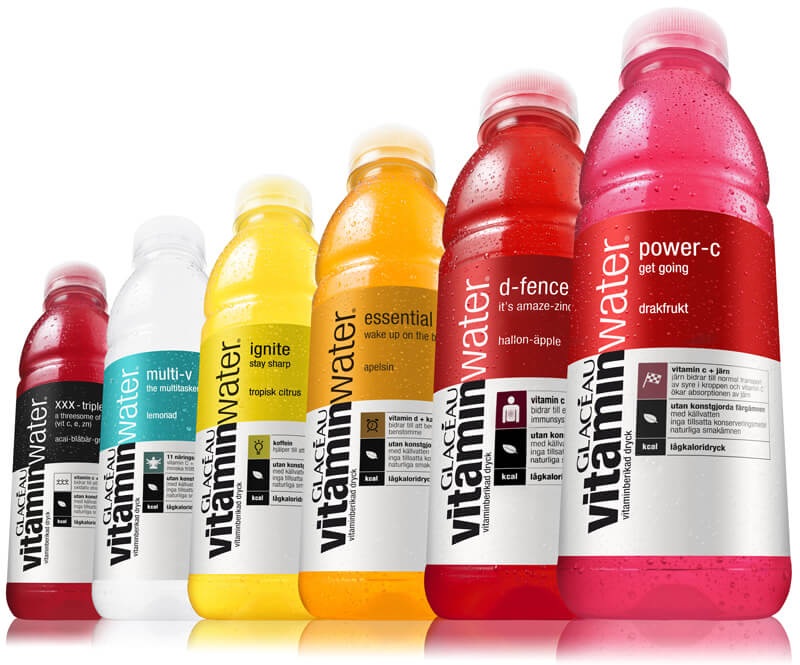Sports Drinks: Harmful, Good and Maybe Not for YouBy Angelica Malin
Have you ever noticed that the athletes pictured in Gatorade’s advertisements and TV spots are really going at it? I mean, they are pouring sweat like they have just done battle, or at the very least ran a marathon. And, just as they are nearing the point of absolute exhaustion, their energy is restored by a splash of colorful sports drink.
Of course this is a dramatization and these sports drinks do not have this miracle-like effect towards revitalizing our bodies, but these advertisements are aimed at demonstrating the supposed effects of a sports drink. Mainly these claimed benefits involve better hydration (even compared to water), increased energy levels, and replenished electrolyte stores.
Better Hydration than Water
A lot of popular sports drinks make the claim that they are better than water at keeping you hydrated. Here is something you probably already know ─ whenever a product claims to be better than water, it is not true. There is no magic bean ingredient in sports drinks that enhance your body’s water absorption capabilities.
That being said, the claim is not total nonsense because people who drink these sports drinks actually do tend to stay more hydrated than those sticking with only water. Why? Because sports drinks have salt and other ingredients that make you drink more water than you typically would. Salt is actually a vital resource when you are working out because your body is depleting its salt stores as you sweat.
So, the salt content of sports drinks is not a real concern. The real problem is the type of salt. Most sports drinks use highly processed salt, which is not really the best option. By simply adding natural sea salt to your water, you could achieve similar hydration in a much healthier way. This unprocessed salt also contains a number of minerals useful for to the body.
Higher Energy
Sports drinks get their energy claim because they are packed with sugar. Having energy when you exercise is always important, but not a lot of people consume Gatorade or other sports drinks prior to their workout, but rather during or after. Thus, the sugary content doesn’t really achieve its supposed positive effect.
Instead, this sugar, especially when consumer during the post-workout stage, has some key drawbacks. Not only does this sugar-induced energy boost come with a crash shortly after, but sugar negatively impacts the body’s sensitivity to insulin, which could result in decreased muscle tissue building.
Before you wave this off because your chosen sports drink has “sugar-free” and “0 calories” printed on the label, be aware that this means it probably contains potentially harmful artificial sweetener, which is likely even worse for you than fructose or similar, processed sugars.
Restoring Electrolytes
Arguably, restoring electrolytes is the primary selling point of sports drinks and this claim is actually true. Sports drinks are stuffed with electrolytes, which are depleted as we sweat and exercise. Therefore, consuming a sports drink will help in restoring depleted electrolytes. You can actually suffer from a condition known as Hyponatremia if you have low levels of sodium in your blood. A primary cause of this condition is essentially sweating too much.
The kicker is it is actually incredibly difficult to deplete your body’s electrolytes or sodium stores to the point that you actually need to be worried about restoring them. Again, think about the condition of those athletes in the Gatorade commercials; that is basically the point you need to be at for electrolytes to actually be a concern.
In fact, it is estimated that you would have to be working out and sweating for between three to five hours, before your body used up its stores of these resources. So, the casual exerciser, even someone pushing themselves for an hour plus at the gym, doesn’t really need an electrolyte-restoring sports drink. You will end up replenishing the minimal amount of electrolytes consumed during your workout with your next meal.
A Quick Note About Calories
We have already discussed the dangers of the “0 calories and sugar-free” sports drink above. Let’s briefly touch on the sports drinks that do contain calories. There are benefits to having some calories after a workout, but only if you have been working out for awhile or at a high intensity. In this scenario, your body could definitely use some added calories.
However, some casual exercisers are under the misconception that although they contain calories, sports drinks will enhance their body’s ability to burn fat and thereby counteract these added calories. No. If you are just going for a light jog or walk on the treadmill, you are likely not burning enough calories for your body to need any extra. If your goal is to lose weight, consuming more as you casually workout basically defeats the purpose.
Conclusions
Overall, sports drinks are not evil. They are not quite what they pretend to be or do what they say they’ll do, but they are not inherently bad for you. If you manage to stay away from the sugar-free variety that is loaded with artificial sweeteners, then they can actually provide you with some positive benefits. After all, at the end of the day, hydration is the most important thing. If you find that these drinks cause you to hydrate more efficiently than if you stuck to guzzling water, then stick with what you know works. Just remember that these sports drinks products are not at all what they are chalked up to be and most of us would simply be better off sticking to the classic ─ a glass of water.
Phil Slater is a blogger, nutrition expert and fitness enthusiast who writes about all things relating to health and fitness. Over the years, Phil has helped many of his personal coaching clients live happier lives by helping them achieve their fitness goals.



